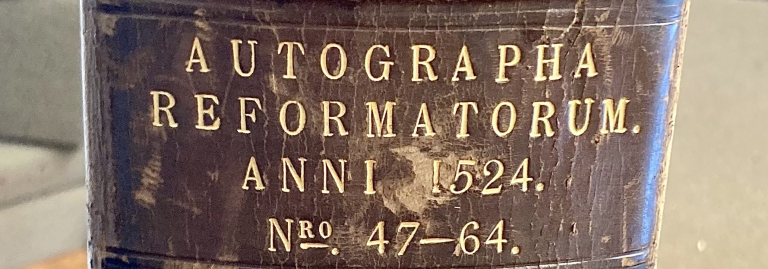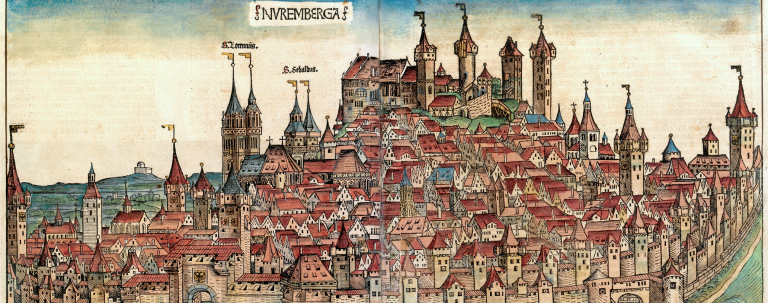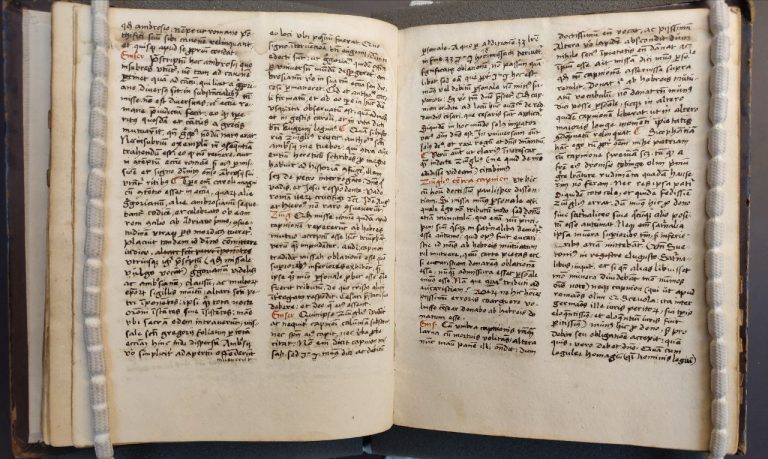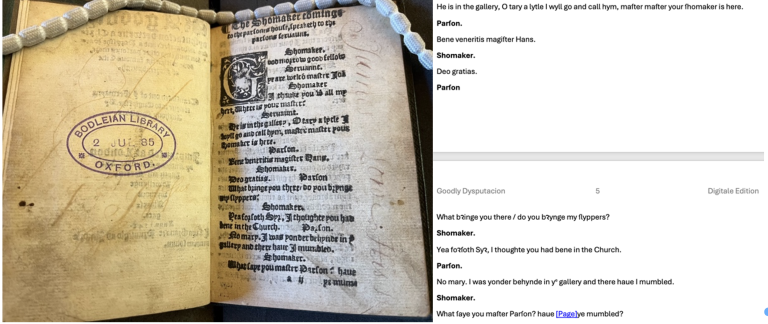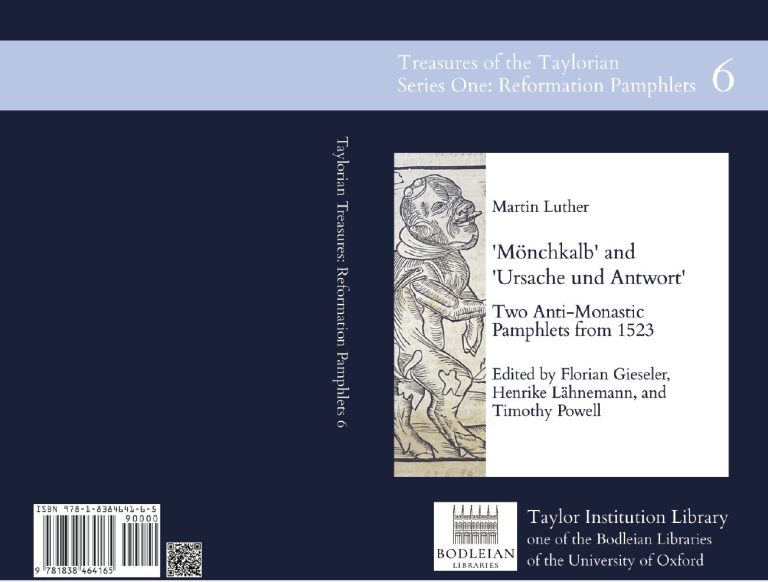The edition ‘Wider die Rotten der Bauern’ / ‘Against the Bands of Peasants’ launched on Friday, 28 November 2025, in the Taylor Institution Library. The edition comprises a historical and bibliographic introduction as well as the edition, translation, and facsimile. Watch the launch with a full reading of the pamphlet below. Ebook of the volume …
Tag: Reformation
Hans Sachs in Oxford 4: The Edition
By Henrike Lähnemann Preface to the Edition 2024 marks the 500th anniversary of Hans Sachs publishing in quick succession four prose dialogues which became bestsellers, particularly the first one where he has his alter ego, Hans the cobbler, debate a pompous priest – and win the day, of course. That the Taylorian was aware of …
Hans Sachs Edition 3: The Pamphlets in Oxford
By Philip Flacke The Reformation in sixteenth-century Germany was a matter of public debate to a scale that had never been seen before. It was carried by a generation, born between 1470 and 1500, whom Thomas Kaufmann has recently characterised as ‘printing natives’ in analogy to the digital natives of today.1 These women and men …
Hans Sachs in Oxford 2: English Reformation Dialogues
By Jacob Ridley When the nine-year-old Edward VI came to the throne of England in January 1547, the floodgates of English Protestant print opened. His father Henry VIII had declared an independent Church of England in 1534, rejecting the authority of the Pope, but Henry remained theologically conservative and enforced heresy laws against the more …
Hans Sachs in Oxford 1: Historical Context
By Thomas Wood Situated on the river Pegnitz in the heart of the Holy Roman Empire, the Nuremberg of Hans Sachs was a thriving Free City that acted in 1524 as a site of both Imperial power and religious conflict. In the late Middle Ages and into the sixteenth century, Nuremberg had been a prosperous …
Of a Certain Type: Dialogues and Dancing Death in the Bodleian Bibliographical Press
By Molly Bray (MSt in Medieval Studies) For our first session as book-historians-in-training, we asked the question, ‘what is a book?’ Is it the form, the function? Now, for our second session, we get to see and, indeed, operate the mechanics that make one. Held behind a large wooden door and the once-accurate waymarker of …
Whose hand? Unearthing an Unknown Manuscript in the Bodleian
The discovery of an unknown Bodleian manuscript of Hieronymus Emser’s defence against Huldrych Zwingli’s 1524 tract opposing the Catholic Mass, which celebrates its quincentenary this year, raises many questions: Who penned or commissioned it, for whom, why, and where did it come from?
As Translation Intern in Oxford
David Hirsch studies Translation Studies at Heidelberg University and spent his mandatory placement in Oxford during Hilary Term 2024, working with Henrike Lähnemann I was very nervous arriving in Oxford, as I had never had an experience quite like this before. It was quite beneficial to me, then, to be instantly thrown in the deep …
Multilingual Monkcalves and Manuscripts. Working as Intern at Oxford
During Michaelmas Term 2023, Kira Kohlgrüber (Frankfurt) and Karen Wenzel (Augsburg) worked as research interns with Henrike Lähnemann. Here Kira reports on behalf of both of them on highlights of their time in the city, on working with manuscripts, Reformation pamphlets, and xml, and being part of the History of the Book group at the …
Monk-Calf and Nuns on the Run. Two Reformation Pamphlets from 1523
For Volume 6 of the series ‘Reformation Pamphlets’, a team of Germanists from Halle and Oxford have edited two short polemical texts from 1523 held in the Taylorian by Martin Luther, dealing with the question whether monks and nuns should leave their monastic houses: Deutung der greulichen Figur des Mönchkalbs (‘Interpretation of the Gruesome Figure …

